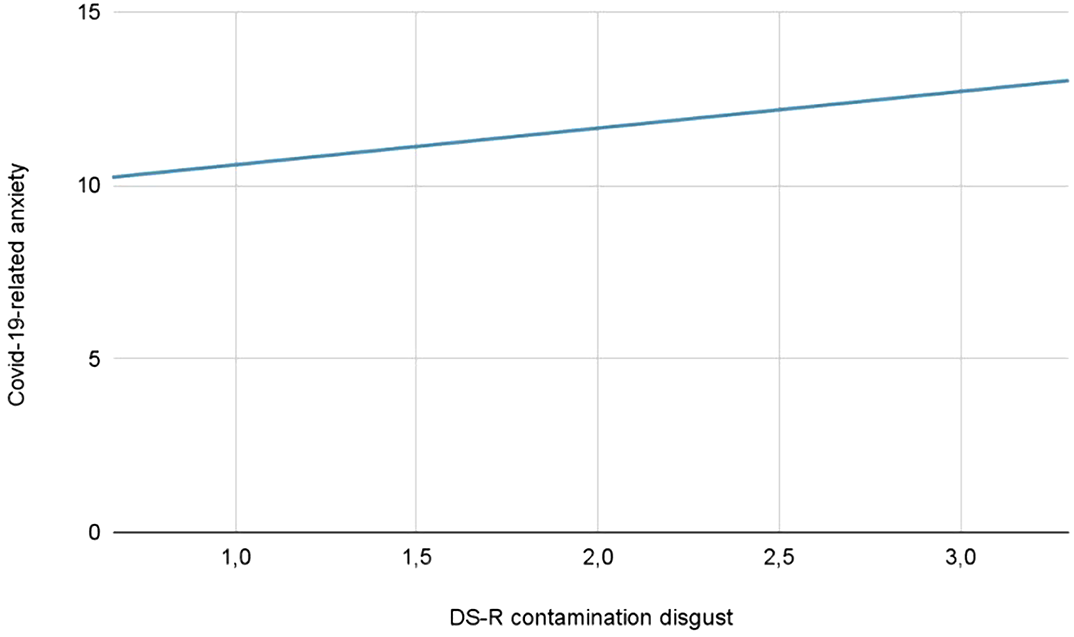No CrossRef data available.
Article contents
The effect of contamination disgust on Covid-19-related anxiety
Published online by Cambridge University Press: 01 September 2022
Abstract
It is proven that high levels of disgust contribute to implementing protective behaviors. Investigators also discovered that the emotion of disgust plays a central role in determining anxiety related to the contraction of COVID-19. Few data are available about the role of the contamination disgust, a specific disgust domain, in this relationship.
The effect of contamination disgust on COVID-19-related anxiety was investigated.
295 healthy subjects were enrolled through an online survey. They completed Disgust Scale-Revised (DS-R) and were asked to estimate their levels of Covid-19-related anxiety in 12 proposed situations. A total score was then calculated. An ANOVA model having Covid-19-related anxiety total score as dependent variable, and DS-R contamination disgust, age, and sex as predictors was estimated.
The overall model was significant (F(3,291)=6.402, p<0.001) and explained 6.2% of total Covid-19 anxiety variance (R2=0.062). The effect of DS-R contamination disgust on Covid-19-related anxiety was positive, significant (B=0.974, t(291)=3.227, p=0.001) and explained 3.5% of Covid-19-related anxiety variance (partial η2=0.035). A significant effect of sex was detected (F(1,291)=4.919, p=0.027), with females having higher Covid-19-related anxiety than males, while no effect was detected for age (B=-0.024, t(291)=-0.884, p=0.377).

The presented data provide preliminary evidence for an effect of contamination disgust on Covid-19-related anxiety.
No significant relationships.
- Type
- Abstract
- Information
- European Psychiatry , Volume 65 , Special Issue S1: Abstracts of the 30th European Congress of Psychiatry , June 2022 , pp. S66
- Creative Commons
- This is an Open Access article, distributed under the terms of the Creative Commons Attribution licence (http://creativecommons.org/licenses/by/4.0/), which permits unrestricted re-use, distribution, and reproduction in any medium, provided the original work is properly cited.
- Copyright
- © The Author(s), 2022. Published by Cambridge University Press on behalf of the European Psychiatric Association





Comments
No Comments have been published for this article.